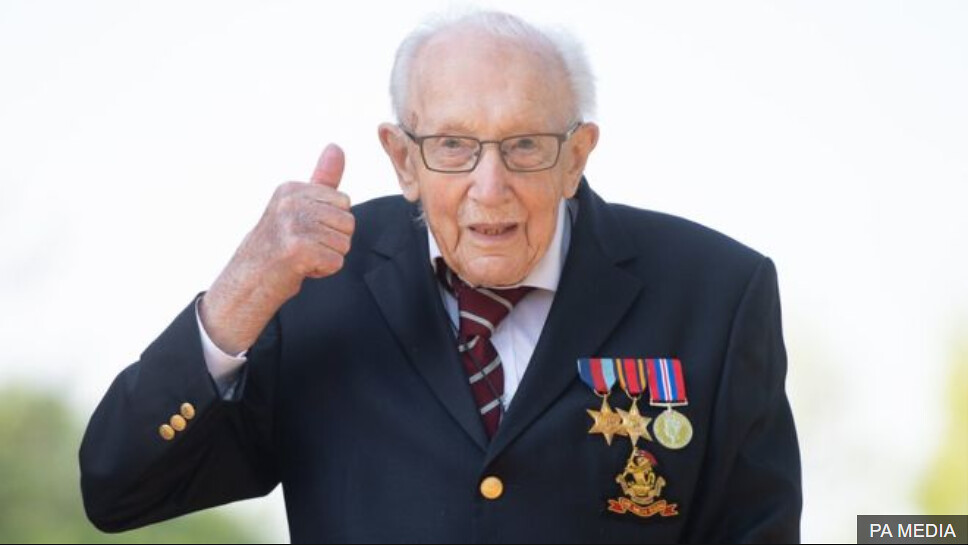
By Joe McDowell and Sarah Ritzenthaler, Jubilee Centre for Character and Virtues, University of Birmingham.
“At a time when many of us felt we were only able to support those closest to and immediately around us, the attitude shown by Captain Tom of simply wanting to do something to help others was inspiring to many.”
It has long been said by politicians and historians that moments choose the person, rather than the other way around. Recently, such language has been used by political commentators marking the inauguration of Joe Biden as President of the United States – but this is not the only example in the past year of this phenomenon. Such people of course face the very same challenges as many of us, and some are even resistant to the platforms on which they are placed. But when the crisis we currently face created the conditions for such a moment, a 99-year-old veteran began to walk laps of his garden, and became an example for us all.
With the funeral of Captain Sir Tom Moore this past weekend, we have reflected on the outpouring of support that his passing has drawn, and believe that it demonstrates his importance as a symbol of solidarity in the face of COVID-19. His fundraising effort alone stands as a wonderful achievement, but it is arguably his character that will have the greatest impact in future – long after the money he raised has been spent.
We believe that Captain Tom is a moral exemplar whose character resonated with many. A quiet, temperate and charitable individual who defied our assumptions about the capabilities of old age and encouraged others to step up and make a difference. Some may make arguments based on generational differences, but such assumptions are often based on a version of the truth depicted in Hollywood rather than the blitz-stricken streets of London – and community awareness and service has also been recognised in many young people today as well.
Regardless of his age and his status as a veteran, in Captain Tom we find a tangible virtuous role model who encourages the development of positive character traits. This aligns with research led by the Jubilee Centre for Character and Virtues which has shown that young people learn best by habituation of positive traits demonstrated to them by a virtuous role model.
At a time when many of us felt we were only able to support those closest to and immediately around us, the attitude shown by Captain Tom of simply wanting to do something to help others was inspiring to many. This crisis has taken much from society and denied us our ability to congregate. This is especially problematic because good character cannot exist in a vacuum; it requires interaction to be shared, developed and nurtured, and often the catalyst is inspiration of others. Captain Tom not only exhibited virtues such as perseverance and humility, but also gave us a channel for positivity in our own lives.
While the language of civic virtues may be contested, underused and poorly understood, our inclination to value those who dedicate themselves to their communities indicates that the practice of civic virtue is still relevant and of worth. As we build out of this crisis, understanding the route through which this could happen may help us to rethink the way that civic-mindedness and service manifests across our society and how it can be encouraged in future, outside of the context of the extreme.
It is important to acknowledge that Captain Tom was by no means perfect, and that not all of the community-minded virtue we have seen across this pandemic is related to his efforts. Polling both from the Jubilee Centre and organisations such as The National Council for Voluntary Organisations and UKOnward has shown people’s willingness to volunteer, although it also highlights an opportunity gap between desire to support those in need and the ability to realise that through service. Particularly in young people there has been frustration reported amongst those who attempt to give their time and involve themselves in the life of their communities, but are under-utilised or never called upon.
It is clear that the loss of Captain Sir Tom Moore has been poignant for many. His actions, informed by a virtuous mindset, set a tone for harnessing the difficulties of the last year rather than ignoring them; focusing on making a difference within the world he could control, so that even one lap at a time, he could help to create a better tomorrow.
- Find out more about the Jubilee Centre for Character and Virtues at the University of Birmingham
- Back to Social Sciences Birmingham
